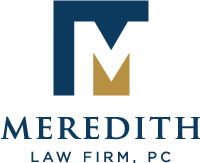In short, “yes, you can.” Perhaps a better question is, “Should I create my own estate planning documents?” In my opinion, the answer to that question is “probably not.” In today’s world of Google and You Tube we have access to a huge amount of information that explain how to do just about anything. If I need to know how to repair the brakes on my car, chances are I can find an article, or better yet, a video explaining the process. But, just because we can find out how to do something, that does not mean we are qualified to do it; there are things that are better left to the experts.
I consider the legal arena to be one of those areas that is better left to the experts. I am sometimes asked why a person would choose to hire me rather than just go on the internet and draft their own documents. I think there are a couple of good reasons why that is not such a good idea.
1. A website does not offer you the advice and counsel that a qualified attorney can.
2. A website does not keep up with changes in the law not does it know the specifics about what your state may require.
For example, here are a couple of paragraphs from terms and conditions from a popular website that offer legal documents:
LegalZoom.com provides an online legal portal to give visitors a general understanding of the law and to provide an automated software solution to individuals who choose to prepare their own legal documents. To that extent, the Site includes general information on commonly encountered legal issues. LegalZoom’s Services also include a review of your answers for completeness, spelling and grammar, and for internal consistency of names, addresses and the like. At no time do we review your answers for legal sufficiency, draw legal conclusions, provide legal advice or apply the law to the facts of your particular situation. LegalZoom and its Services are not substitutes for the advice of an attorney.
LegalZoom strives to keep its legal documents accurate, current and up-to-date. However, because the law changes rapidly, LegalZoom cannot guarantee that all of the information on the Site is completely current. The law is different from jurisdiction to jurisdiction, and may be subject to interpretation by different courts. The law is a personal matter, and no general information or legal tool like the kind LegalZoom provides can fit every circumstance. Furthermore, the legal information contained on the Site is not legal advice and is not guaranteed to be correct, complete or up-to-date. Therefore, if you need legal advice for your specific problem, or if your specific problem is too complex to be addressed by our tools, you should consult a licensed attorney in your area.
3. It may save you some money up front, but chances are you, or your beneficiaries, may spend thousands more cleaning up the mess that has been created.
Finally, here is a good article I recently came across that points out some of these and other shortcomings of on-line legal work. It is written by Rob Clarfeld, a financial advisor and contributor to Forbes.
